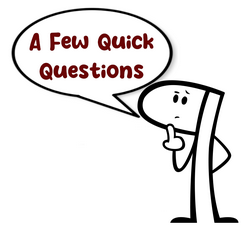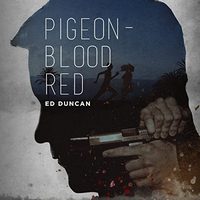Earlier this morning, I gave my take on Ed Duncan’s Pigeon-Blood Red (and it occurs to me that I didn’t explain that interesting title choice–one more reason for you to listen to/read it). Now I get to share a quick Q&A that Duncan was kind enough to make time for. I hope you enjoy this as I did!
Why don’t you introduce yourself to my audience, and talk about what led to you writing thrillers—has this been a plan for a while, and post-retirement you had time for it? Or is this a later-in-life choice?
I have enjoyed writing since English composition days in high school. I always planned to write a novel when I got the chance, but I never found time until after a career of practicing law. Along the way, in 2008 I wrote a legal treatise entitled Ohio Insurance Coverage, which I updated annually through 2012, the year I retired.
I read The Maltese Falcon by Dashiell Hammett as an adult and was so taken by it that I decided that crime fiction would be my genre. Indeed, I still find inspiration in Hammett’s masterful dialogue, much of which is reproduced almost word for word in the last movie version of the novel written and directed by John Huston. For example, there is this:
Spade to Wunderle:
I’m going to send you over. The chances are you’ll get off with life. That means you’ll be out again in twenty years. You’re an angel. I’ll wait for you…. If they hang you I’ll always remember you.
Later he tells her:
Don’t be silly. You’re taking the fall. One of us has got to take it …. They’d hang me sure. You’re likely to get a better break….
Still later Spade says to her:
I don’t care who loves who. I’m not going to play the sap for you. I won’t walk in Thursby’s and Christ knows who else’s footsteps. You killed Miles and you’re going over for it.
For you –at least when it came to Pigeon-Blood Red – what came first? Rico, or one of the other characters, and you had to come up with a story to put them into; or was it a story that you needed to populate?
You have hit upon something here because the two alternatives you present are closely related. Because the two main characters in this story come from such different worlds, and yet would be interacting together, before I could begin to write, I had to imagine a plot line in which they could believably exist and interact together. In other words, I had to come up with a story that brought a lawyer from a big corporate law firm together with a hit man for more than a fleeting instant. And, because I’ve written a trilogy, I had to do it three times! I think I mostly succeeded but not with everyone. For instance, despite giving me an overall positive review, a recent reviewer called the storyline in Pigeon-Blood Red “absurd.” The foregoing notwithstanding, I already knew who Rico and Paul were, which is to say, what kind of man each was and what each would find that was positive about the other’s character, however reluctantly. I just needed interesting supporting characters and an intriguing crime to bring them and everyone else together.
There are a lot of balls in the air at once here – how do you approach something like this – did you write a character/group of character’s arc at a time and then layered them together? And was getting all the ducks to line up in a row just right enough to make you think of writing a sequel to Ohio Insurance Coverage instead?
First, there was never a possibility that I would write a sequel to Ohio Insurance Coverage. That legal treatise and its annual supplements was a project that I happily bequeathed to another lawyer in my old law firm after I retired in 2012. You are correct, however, that for such a slender novel, there are a lot of balls in the air. Writing it chronologically helped me to keep each of those balls in the air. However, I did write chapter one out of order both so that I could start the novel with a bang, so to speak, and so that I could introduce the reader to two warring sides to Rico’s complex personality: his inability to recognize his cruelty toward his own girlfriend when he believes it is required by “business” and the pleasure he gets out of turning the tables on a husband who is bullying his wife.
There were some great characters in here—and most of them weren’t who I expected to find when I started the book. What was the bigger challenge—getting these people to live and breathe in a way that was satisfying to you (and the reader) or getting the action/plot just right?
Again, both challenges were related and almost equally formidable. I needed to construct a story that was dramatic and exciting and yet believable. While in general that is the challenge of almost any writer of fiction, and in particular it is the challenge of any writer of crime novels, the task is made more difficult if the story is implausible. So, while it was a close call, getting the action/plot right was more of a challenge.
What lessons were you able to take from finishing Pigeon-Blood Red to make The Last Straw easier—or was it such a different animal that you were back to Square One?
There is a famous writer’s quote that is often attributed to Ernest Hemingway but whose author is probably unknown. I learned how true the quote was when I wrote Pigeon-Blood Red and it was no less true when I wrote the other novels in my trilogy. Thus, it is the lesson I was able to take from finishing each novel. Unfortunately, it did not make writing either the second or the third novel easier. Here is the quote: “Writing is easy. All you have to do is sit down in front of a blank sheet of paper and open a vein.”
Who are some of your major influences? (whether or not you think those influences can be seen in your work — you know they’re there)
I think Dashiell Hammett and Lee Child are my major influences. Others include Walter Mosley and Frederick Forsythe.
Is there a genre that you particularly enjoy reading, but could never write? Or are you primarily a mystery/suspense/thriller reader?
Duke Ellington once said, “There are only two kinds of music: good music and bad music.”* I feel the same way about writing. Therefore, I enjoy reading in every genre, but I particularly enjoy histories of the Civil War and its Generals, histories of World War II, biographies, and literary fiction. I may take a crack at literary fiction one day, but I could never write in any of the other genres.
* I thought it was Country and Western. Guess you learn something every day.
What’s next for Ed Duncan, author?
I would like to write a fourth installment in the adventures of Rico and Paul and Jean and Evelyn. Then I would like to write that literary novel. I hope I get to both.
Thanks for your time and participation–and for this entertaining listen!
Thanks for your interest. You posed some intriguing questions.




